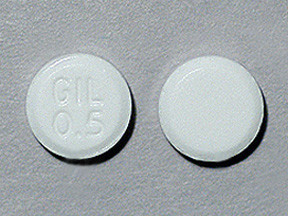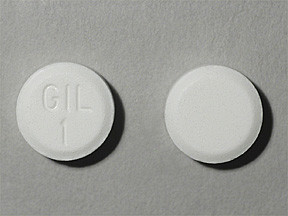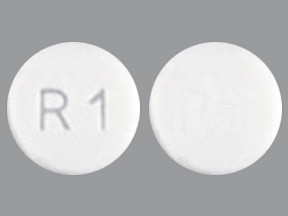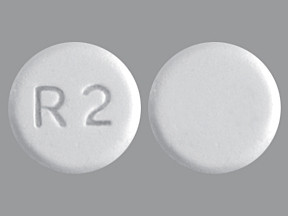RASAGILINE - ORAL
PHONETIC PRONUNCIATION: (ra-SA-ji-leen)
COMMON BRAND NAME(S): Azilect
GENERIC NAME(S): rasagiline mesylate
Uses
USES: Rasagiline is used alone or with other medications (such as levodopa/carbidopa) to treat symptoms of Parkinson's disease. It can help improve symptoms such as shakiness, stiffness, and difficulty moving. It can also help reduce the amount of "off" time (periods of slow movement or stiffness). Rasagiline belongs to a class of drugs known as MAO inhibitors. It works by increasing the levels of certain natural substances in the brain (such as dopamine, norepinephrine, serotonin). Parkinson's disease is thought to be caused by too little dopamine in the brain.
How to use RASAGILINE - ORAL
HOW TO USE: Take this medication by mouth with or without food as directed by your doctor, usually once daily. The dosage is based on your medical condition, response to treatment, and other medications you may be taking. Be sure to tell your doctor and pharmacist about all the products you use (including prescription drugs, nonprescription drugs, and herbal products). Do not increase your dose or take it more often than prescribed. Your condition will not improve any faster, and your risk of side effects will increase. Do not stop taking this medication without consulting your doctor. Some conditions may become worse when this drug is suddenly stopped. Your dose may need to be gradually decreased. A very serious high blood pressure reaction may rarely occur if you eat a large amount of tyramine while taking rasagiline and for 2 weeks after you stop it. Avoid foods that are high in tyramine, like aged cheeses (such as Stilton cheese). Consult your doctor or dietician about which foods you should avoid and if you do not feel well after eating or drinking certain foods while taking this medication. See also Side Effects section. Tell your doctor if this medication stops working well or if your condition gets worse.
Side Effects
Precautions
Interactions
Overdose
Images

- color
- white
- shape
- round
- imprint
- GIL 0.5

- color
- white
- shape
- round
- imprint
- M, RA 5

- color
- white
- shape
- round
- imprint
- RAS, 0.5
Reviews
Faq for RASAGILINE - ORAL
Rasagiline is an oral medication used for the treatment of Parkinson's disease. It belongs to a class of drugs known as monoamine oxidase inhibitors (MAOIs) and helps to improve the symptoms of Parkinson's by increasing the levels of certain chemicals in the brain.
Rasagiline works by inhibiting the enzyme called monoamine oxidase-B (MAO-B), which is responsible for breaking down certain chemicals, such as dopamine, in the brain. By inhibiting MAO-B, rasagiline increases the levels of dopamine in the brain, which helps to improve the symptoms of Parkinson's disease.
Common side effects of rasagiline may include nausea, headache, joint pain, dizziness, sleep problems (insomnia), flu-like symptoms, and constipation. It is important to inform your healthcare provider if you experience any side effects while taking rasagiline.
Rasagiline can potentially interact with other medications, including antidepressants, other MAOIs, opioids, and certain medications used to treat migraines. It is important to inform your healthcare provider about all the medications you are taking, including prescription, over-the-counter, and herbal products, before starting rasagiline.
Rasagiline is usually taken once daily with or without food. It is important to follow the dosing instructions provided by your healthcare provider. Do not stop taking rasagiline suddenly without consulting your doctor, as this may worsen your Parkinson's symptoms.
The safety of rasagiline in pregnant or breastfeeding women has not been established. It is important to discuss with your healthcare provider if you are pregnant, planning to become pregnant, or breastfeeding before taking rasagiline.
The effects of rasagiline may not be noticeable immediately. It may take several weeks of regular use for the medication to reach its full potential. It is important to continue taking rasagiline as prescribed by your healthcare provider to experience the maximum benefits.
Rasagiline is generally considered effective for the treatment of both early and advanced stages of Parkinson's disease. However, the dosage and use of rasagiline may vary depending on the individual's specific condition. It is important to consult with your healthcare provider to determine the most appropriate treatment plan.
Rasagiline does not cure Parkinson's disease. It is used to help manage the symptoms of the condition and improve the quality of life for individuals with Parkinson's. It is important to continue taking rasagiline as prescribed, even if you start feeling better, to maintain the desired effects.
Disclaimer
IMPORTANT: HOW TO USE THIS INFORMATION: This is a summary and does NOT have all possible information about this product. This information does not assure that this product is safe, effective, or appropriate for you. This information is not individual medical advice and does not substitute for the advice of your health care professional. Always ask your health care professional for complete information about this product and your specific health needs.



No Reviews Yet